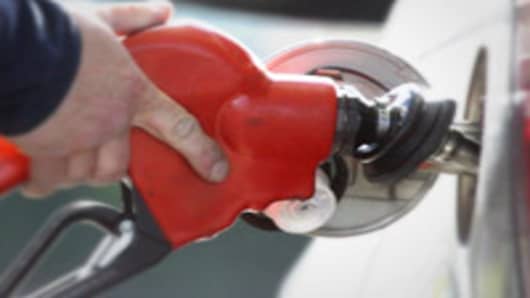Get ready to pay $5 a gallon for gasoline this year.
John Hofmeister, founder of Citizens for Affordable Energy and the former CEO of Shell Oil’s U.S. operations, warned that there is a “better than 50 percent chance” the price of gas will spike on continued heavy demand in emerging markets and weak public policy at home.
He also sees West Texas crudeprices touching “the midteens to $120 a barrel some time this year.”
“What’s really unprecedented is developing countries, particularly China and India, have this insatiable need for more oil and that has not been taken into account when we think of public policy in this country,” he said.
“So while we may be producing a bit more oil in this country, and while demand is down a bit, on a global basis I’m afraid we face a continuing onslaught of prices creeping ever higher,” he said. “I hope I’m wrong on this. I'd love to be wrong on this.”
Hofmeister, a CNBC contributor, spoke Friday, the same day the International Energy Agency cut its oil growth demand forecast for a sixth straight month because of the weak global economy. He disagreed with the IEA, saying “demand is still growing” at a time when East Coast refineries are closing because of declining margins and the uncertainty in the Persian Gulf heats up.
Hofmeister is not the first to predict rising gas prices, although others have forecast a rise to $4 a gallon.
He said while the Obama administration “is doing victory laps” about new rules to raise domestic energy production, there are still permitting delays for oil drilling in the Gulf of Mexico. The possibly temporary defeat of TransCanada’sKeystone Pipeline project throws in another monkey wrench. In short, there should be more domestic drilling, not less, and the administration has done little to encourage it, Hofmeister said.
“We have not had the kind of public policy support for domestic natural resource production increases that would carry through into market prices in the United States given the global demand and geopolitical uncertainty that comes out of the [Persian] Gulf daily,” he said.


